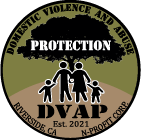Relationships are meant to be a source of love, support, and partnership. However, not all relationships are healthy, and some can come with patterns of power and control that undermine your emotional or physical well-being. Abuse in relationships doesn’t always look the way people expect. It may not leave visible scars or result in dramatic shouting matches. Sometimes, the signs can be subtle, disguised as normal disagreements or miscommunications.
This blog post is here to shed light on what abuse in a relationship might look like. By understanding the subtle warning signs, both survivors and their support networks can take the first step toward healing.
What Does Abusive Behavior Look Like?
When people think of abuse, physical violence is often the first thing that comes to mind. However, abuse can take many forms, including emotional, psychological, verbal, financial, and sexual abuse. Abusers use tactics to gain power and control over their partner, and the signs aren’t always as overt as a slap or punch. Here are some of the most common types of abuse:
Emotional and Psychological Abuse
This type of abuse aims to diminish your self-worth and sense of autonomy. It often revolves around manipulation and control. Examples include:
- Gaslighting: Making you doubt your memory, perception, or judgment by denying past events or reframing situations unfairly. For instance, they may insist, “That never happened,” or, “You’re making a big deal out of nothing.”
- Self-Deprecation as Manipulation: Phrases like, “You’d be better off without me,” or, “I’m such a terrible partner,” are designed to make you feel guilty and stay.
- Constant Criticism: Masked as concern or “helpful advice,” this might sound like, “You’d look better if you lost weight,” or, “You’re way too sensitive about everything.”
Verbal Abuse
Verbal abuse is often underestimated due to its non-physical nature, but it can leave deep emotional scars. Abusers may:
- Use sarcasm or ridicule to belittle you.
- Curse at you or call you derogatory names.
- Make condescending or demeaning remarks about your intelligence, work, or contributions.
Financial Abuse
Financial abuse focuses on controlling or limiting access to money and resources, thereby creating dependency. Signs of financial abuse include:
- Taking control of all finances, leaving you with little to no access to money.
- Preventing you from working or forcing you to quit your job.
- Running up debts in your name or refusing to contribute financially in shared expenses.
Sexual Abuse
Sexual abuse doesn’t always look like what you might expect. It can show up as:
- Coercing or pressuring you into sexual activity without your consent.
- Making comments that shame or demean your sexual self-expression.
- Ignoring your boundaries to satisfy their own needs.
Physical Abuse
This is the most overt form of abuse but can start subtly with behaviors like:
- Gripping your arm tightly during disagreements.
- Blocking the doorway to stop you from leaving.
- Intimidating body language that aims to scare you.
Subtle Red Flags That Shouldn’t Be Ignored
Not all abusive relationships start with obvious warning signs. Often, the abusive behavior creeps in slowly, almost imperceptibly. Here are some subtle but critical indicators to watch for:
Isolation
- They steadily encourage you to distance yourself from friends or family, often saying things like, “They don’t really have your best interests at heart.”
- You notice you’re spending less time with your support network and more time appeasing their demands.
Overstepping Boundaries
- They dismiss your “no” by pushing you into things you’re uncomfortable with and then downplay the significance or consequences of those actions.
- Your boundaries are often pushed aside under the guise of “compromise” but always in their favor.
Extreme Jealousy and Possessiveness
- A partner questioning your every move or becoming unreasonably angry when you’re around others of the opposite sex.
- They monitor your phone, emails, or social media activity in the name of “trust.”
Walking on Eggshells
- You feel constantly on edge, worrying about their reactions even to small, trivial things like being late or accidentally upsetting them.
- You find yourself making excuses for their behavior to others to avoid confrontation.
Downplaying Achievements
- When you succeed, they belittle or trivialize your accomplishments, making it seem like what you’ve done isn’t worth celebrating.
How to Get Help
If you suspect you or someone you know is in an abusive relationship, the most important step is acknowledging it. No one deserves to live under abuse, no matter how subtle it may seem. Here are some steps to consider:
- Reach out for help from a trusted friend, family member, or professional. You don’t have to face this alone.
- Document incidents of abuse to provide an accurate record if needed.
- Contact a hotline like the National Domestic Violence Hotline (1-800-799-7233), where trained advocates can provide support.
Leaving an abusive relationship can be difficult and dangerous. Develop a safety plan that includes emergency contacts, safe exit routes, and secured personal belongings.
Building Awareness Can Save Lives
Recognizing the signs of an abusive relationship, even the subtle ones, is a powerful first step toward breaking the cycle. By understanding and addressing abusive behaviors, survivors can begin to reclaim their sense of self, rebuild confidence, and start the healing process.
Disclaimer: This blog post provides general information about domestic abuse. It does not provide legal advice. Victims should consult with a legal professional for advice related to their specific situation.
Are You Experiencing Domestic Violence or Abuse? DVAP Is Here To Help
Domestic Violence and Abuse Protection, Inc. is a non-profit organization committed to protecting the victims of domestic abuse. When restraining orders are not enough, we are there to provide the determined protection you deserve. We are located at 3900 Orange St. Riverside, CA. Call us at (951)-275 8301 (24 hours). Alternatively, you can email us at admin@dvapriverside.org






